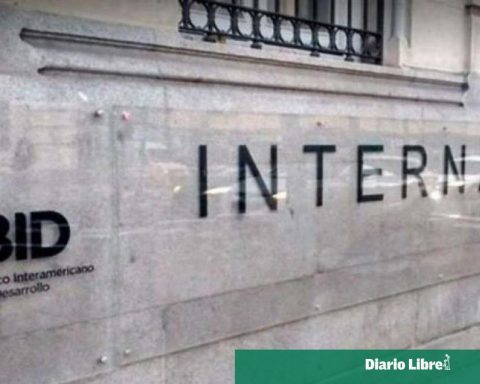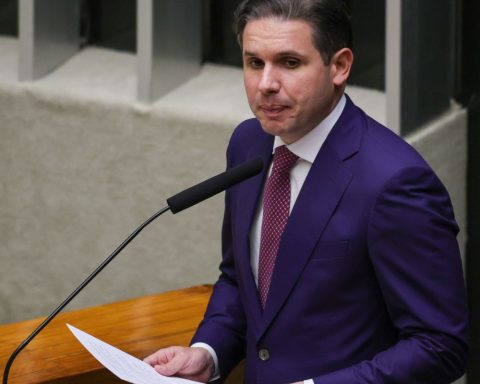The British government declared a state of drought in much of England, hit by a heat wave that is hitting much of Europe and North Africa.
The measure, declared for the first time since 2018, includes areas of London, the Thames Valley and parts of southern, central and eastern England.
According to the AFP news agency, the state of drought forces water companies to draw up contingency plans to deal with the shortage, while watering, washing cars and filling private pools are prohibited.
The United Kingdom experienced its driest month of July ever recorded in certain regions and the driest first semester since 1976, to the point that the source of the Thames, the river that crosses London, dried up and its course only begins about eight kilometers below .
This Thursday, an orange alert was decreed for “extreme heat” in almost all of the south of England and in a part of Wales, which should last until this Friday.
The UK experienced its driest month of July on record in certain regions and the driest first half since 1976
But the record heat of 40.3°C on July 20 is not expected to be exceeded.
“We are better prepared than ever for hot weather, but we continue to closely monitor the situation, including the impact on farmers and the environment, and will take further action if necessary,” said Water Secretary Steve Double.
In the parks of London and much of the country, the green of the grass has turned a straw yellow with a dusty ground, and scientists believe that the multiplication of heat waves is a direct consequence of global warming.
Its been another hot day with temperatures towards the mid 30s ?
Here are the latest highest temperature recorded ?️ #heatwave pic.twitter.com/zx8l6zjtOH
— Met Office (@metoffice) August 12, 2022
France receives collaboration from other countries to fight fires
Separately, several European countries had to send aid to France to fight the flames in various regions, reignited by sweltering temperatures.
The nearly 1,100 mobilized French firefighters were reinforced by 361 troops from Germany, Poland, Austria and Romania, as well as tanker planes from the European Union (EU).
In Gironde (southwest), the flames have burned 7,400 hectares since Tuesday and 10,000 people have been evacuated, some for the second time so far this summer.
In total, more than 40,000 hectares burned this year in Franceaccording to the authorities, although satellite measurements indicate that 50,000 hectares went up in smoke.
Likewise, in Portugal, some 1,500 firefighters have been trying to tackle a fire that has been active for almost a week, which has destroyed some 10,000 hectares in the Serra da Estrela natural park (center).
The flames, which destroyed “unique” forest areas, have caused “irreparable damage,” lamented the president of the environmental association Zero, Francisco Ferreira, on public channel RTP.
Both France and Portugal have also been affected this summer by a historic drought that has forced them to restrict the use of water.
Portugal had its hottest July in almost a century and in France rainfall was 84% lower than usual during the period 1991-2020.
The population’s supply of drinking water now depends on public sources and private wells.
Moroccan reservoirs currently have a filling rate of just 27%, a worrying situation that was aggravated by the worst drought in at least 40 years that the country has suffered.

















